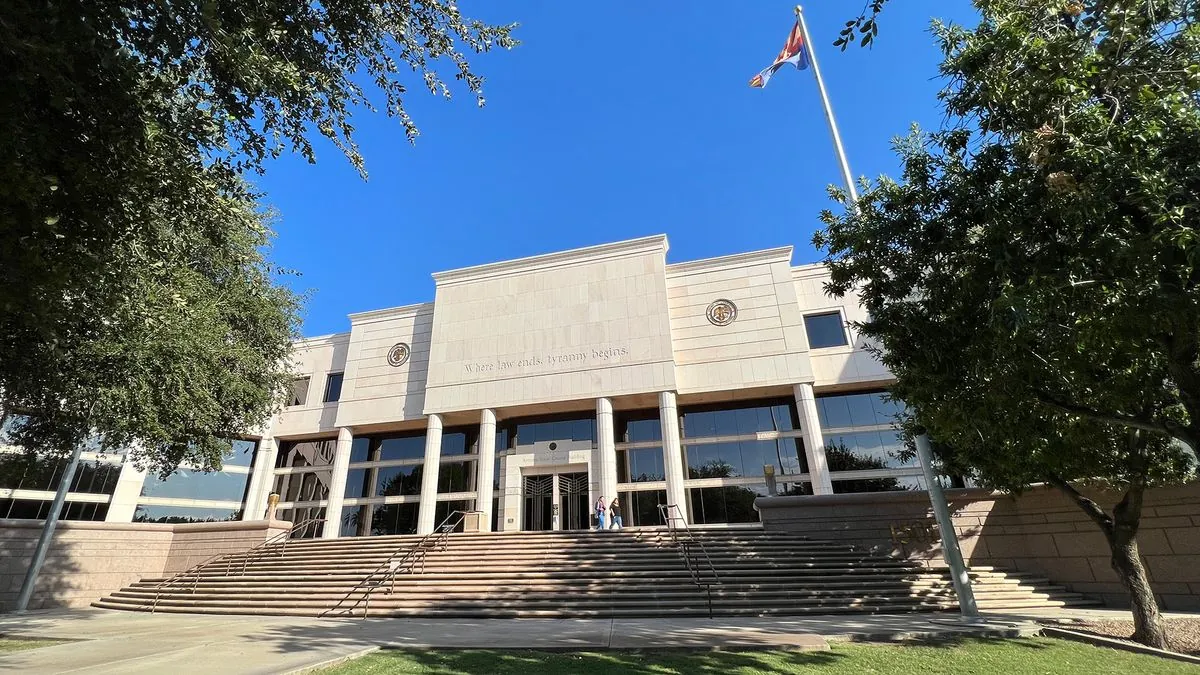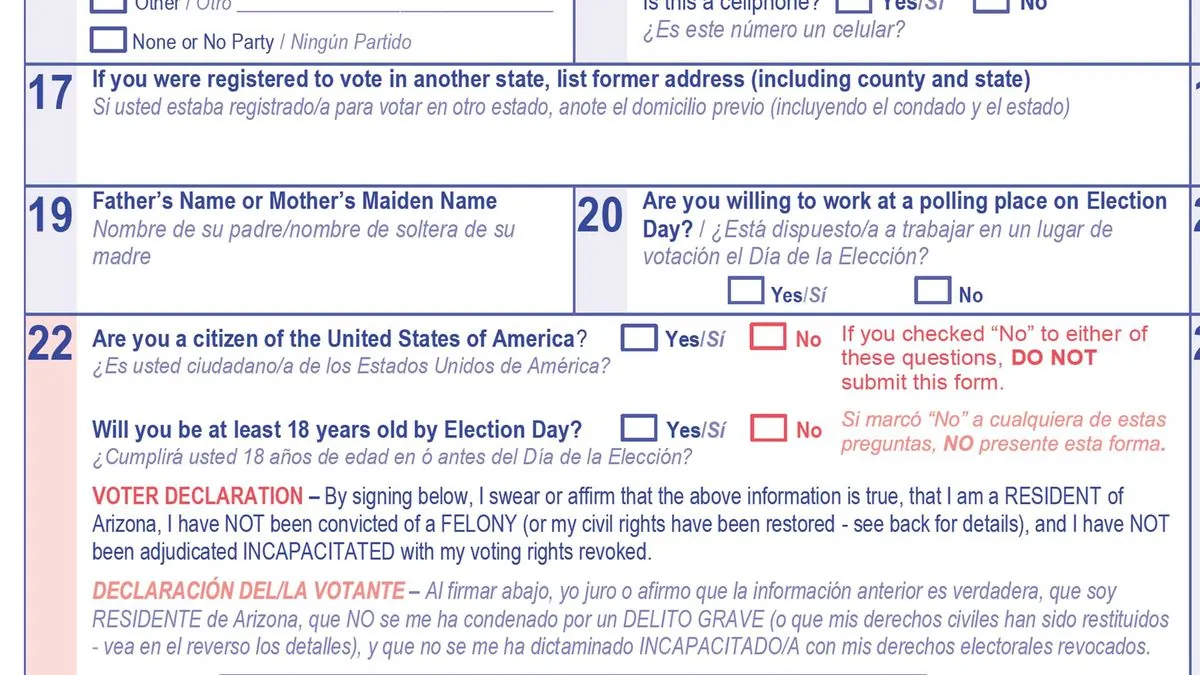Supreme Court Allows Partial Enforcement of Arizona Voter Citizenship Law
Supreme Court rejects GOP push to block 41,000+ Arizona voters from presidential voting, but allows partial enforcement of citizenship proof law for state elections. Decision impacts voter registration process.

In a recent 5-4 decision, the United States Supreme Court has partially upheld Arizona's voter registration law requiring proof of citizenship. The ruling allows for the enforcement of restrictions on state and local elections while rejecting a Republican-led effort to block over 41,000 voters from participating in the upcoming presidential election.
Adrian Fontes, Arizona's Secretary of State, confirmed that county officials will now reject state voter registration forms submitted without documentary proof of citizenship. However, individuals can still register for presidential and congressional elections using a federal form that requires a sworn statement of citizenship under penalty of perjury.

This decision comes less than 90 days before the November 2024 presidential election, raising concerns about potential voter confusion. Fontes expressed apprehension about implementing changes so close to an election, stating, "We respect the Court's decision and will implement these changes while continuing to protect voter access and make voting a simple process."
The ruling particularly affects 41,352 federal-only voters registered in Arizona as of August 9, 2024. These voters, predominantly military service members, students, and Native Americans, are now restricted from participating in state and local elections without providing proof of citizenship.
"Proof of citizenship laws matter a lot. They stand to literally disenfranchise thousands of eligible voters for no good reason."
The controversy surrounding federal-only voters in Arizona dates back to a 2013 Supreme Court ruling that prohibited the state from requiring documentary proof of citizenship for national elections. This led to the creation of two classes of voters: those eligible for all races and those limited to federal elections only.
Arizona's unique political landscape is reflected in its diverse geography and rich history. As the 48th state to join the Union in 1912, Arizona has grown to an estimated population of 7,359,197 as of 2023. The state is home to 22 federally recognized Native American tribes and boasts the largest percentage of land designated as Indian reservation of any U.S. state.
The Supreme Court's decision has reignited debates about voter access and election integrity. Proponents of the law argue it eliminates opportunities for fraud, while critics contend it disenfranchises eligible voters unnecessarily.
As Arizona navigates these changes, it's worth noting that the state's political landscape is as diverse as its natural wonders. From the iconic Grand Canyon to the Meteor Crater, the best-preserved meteorite impact site on Earth, Arizona's geological marvels mirror the complexity of its electoral challenges.
The state's economy, traditionally based on the "5Cs" (copper, cattle, cotton, citrus, and climate), now faces the additional task of balancing economic interests with ensuring fair and accessible elections for all eligible voters.
As the November 2024 election approaches, Arizona's unique position as a swing state, combined with its distinct voting laws, will likely keep it at the forefront of national political discourse. The impact of this Supreme Court decision on voter turnout and election results remains to be seen, but it undoubtedly adds another layer to the state's already complex electoral landscape.


































